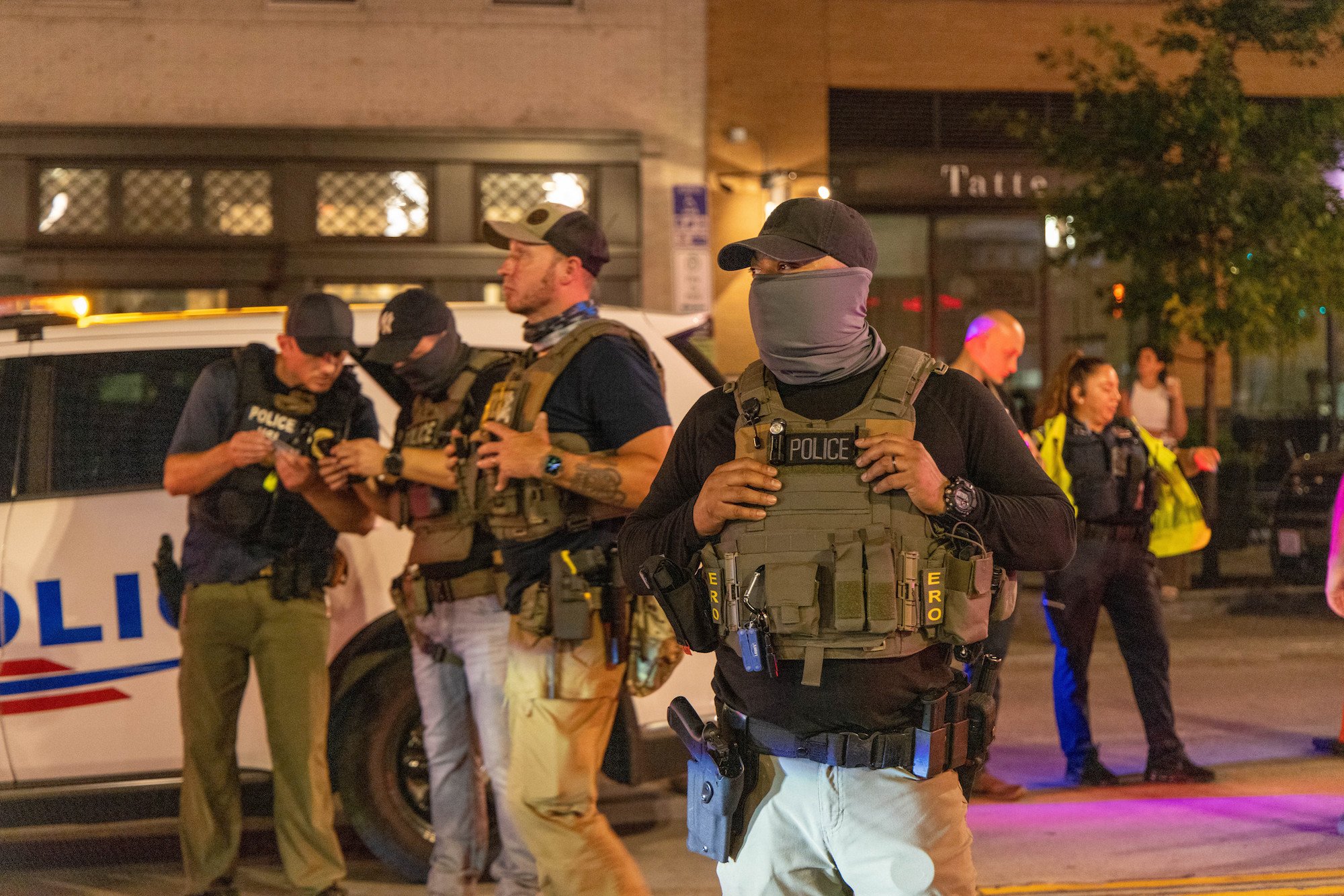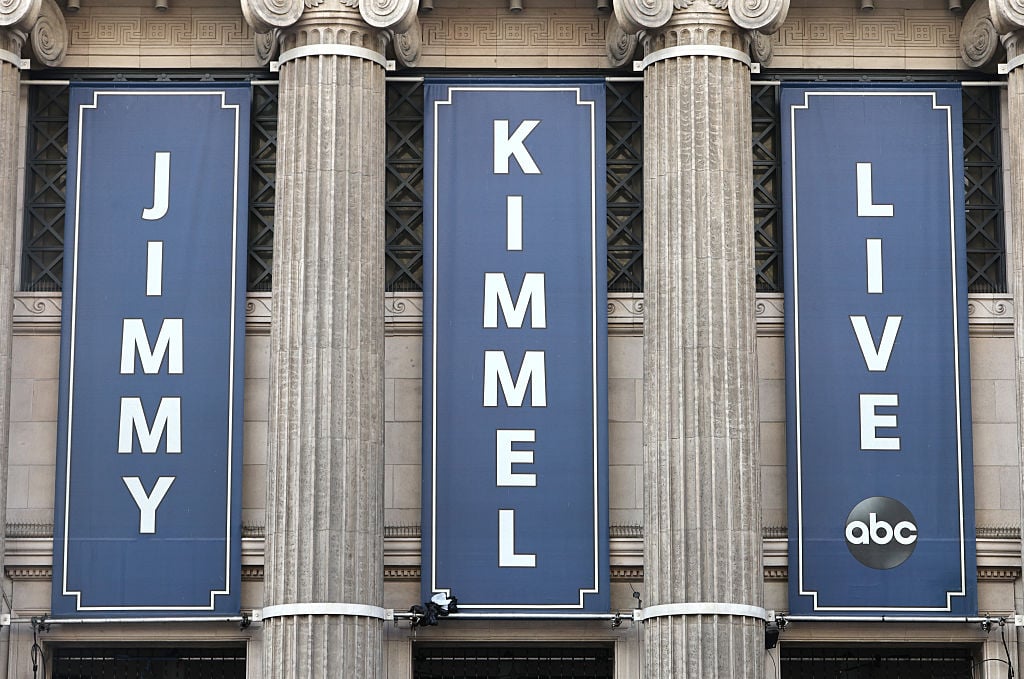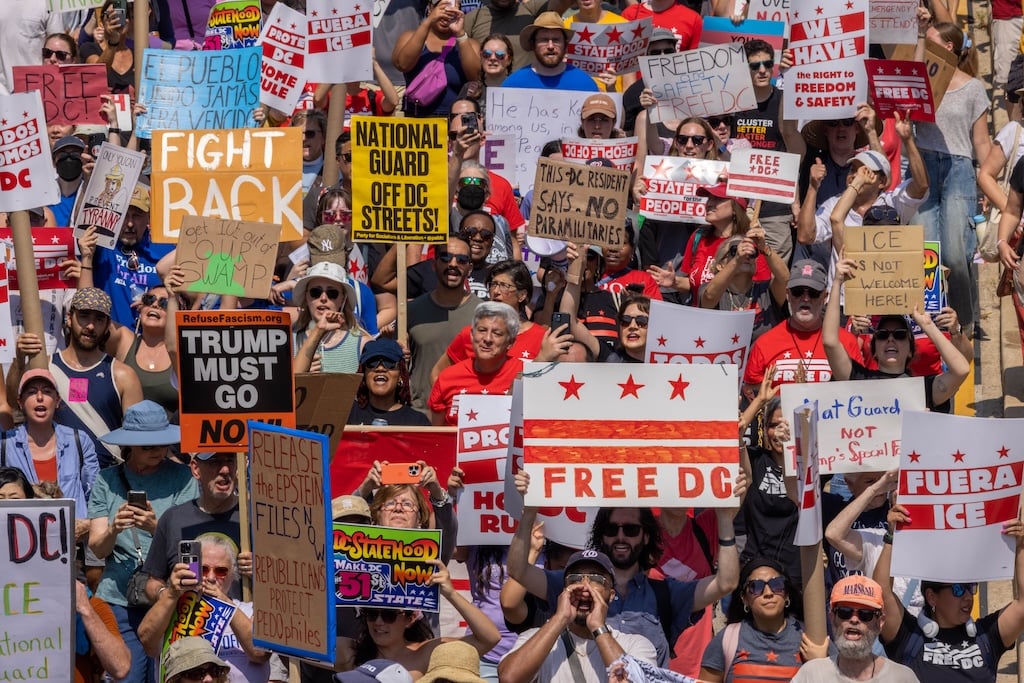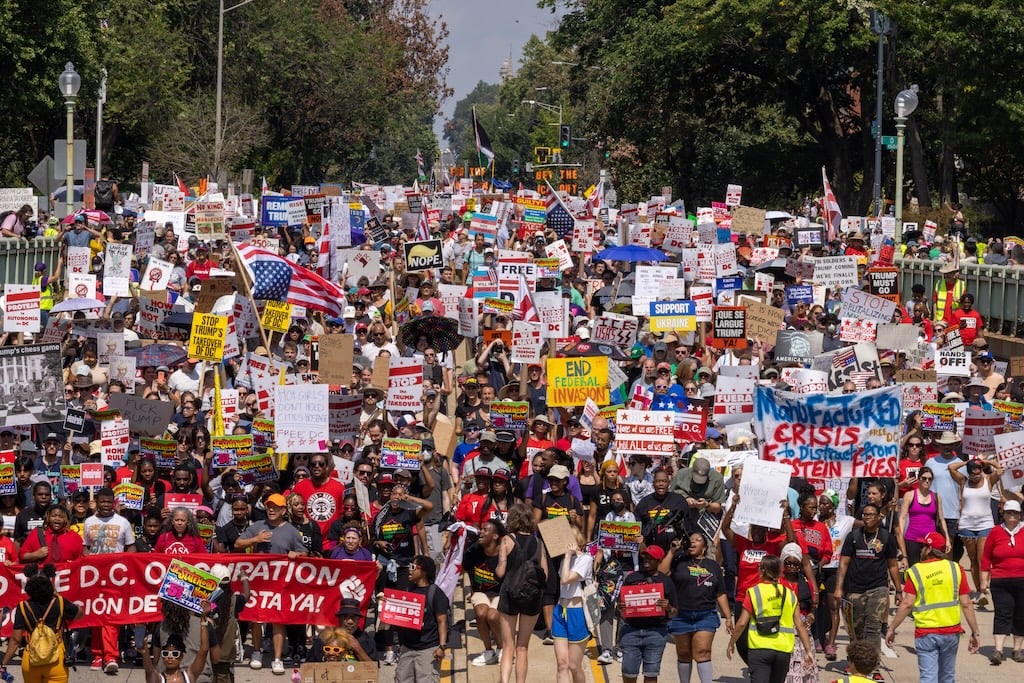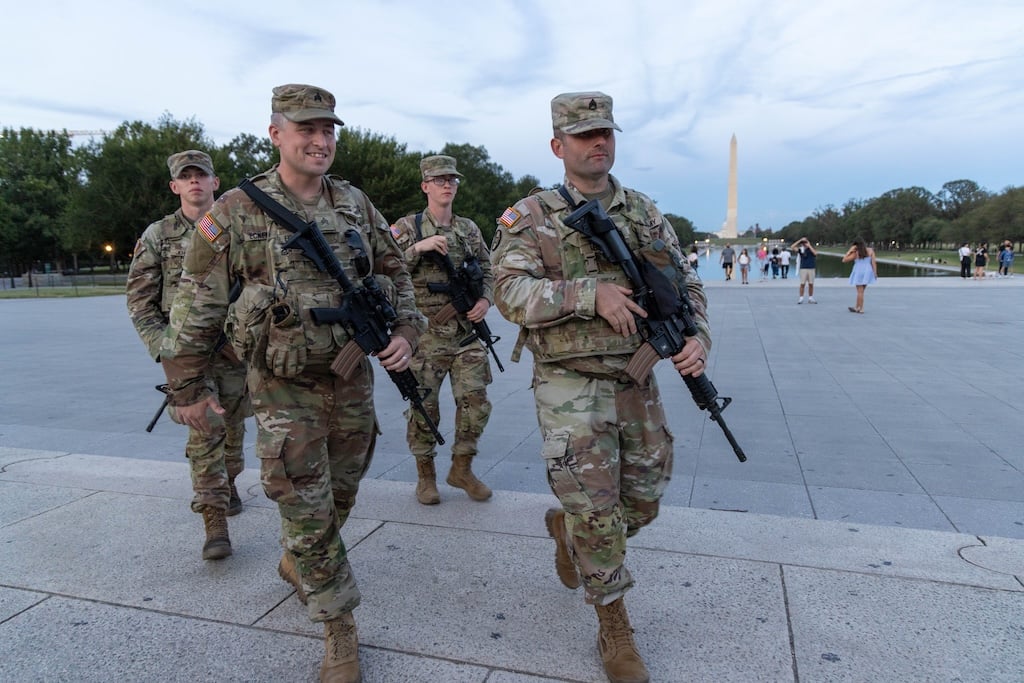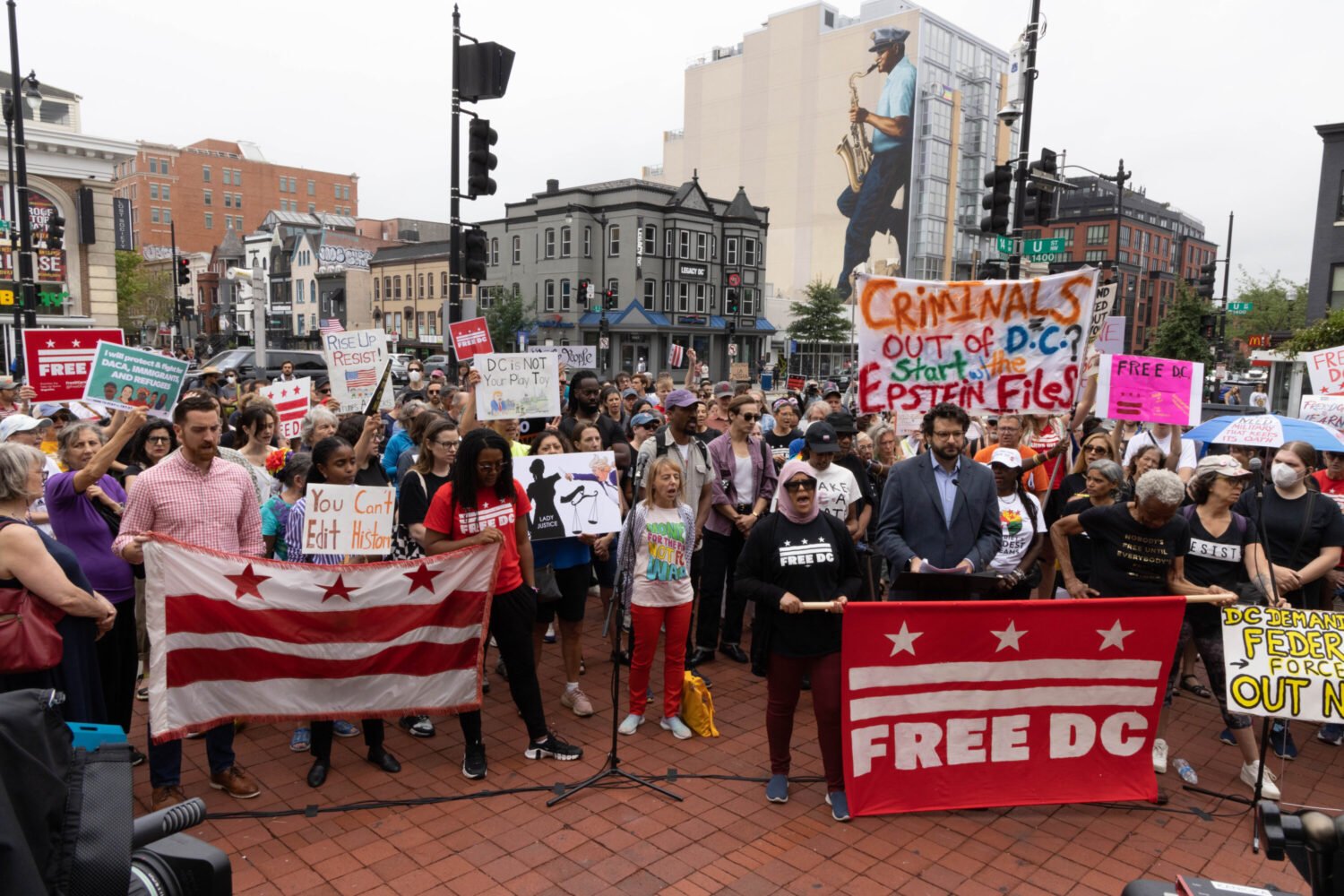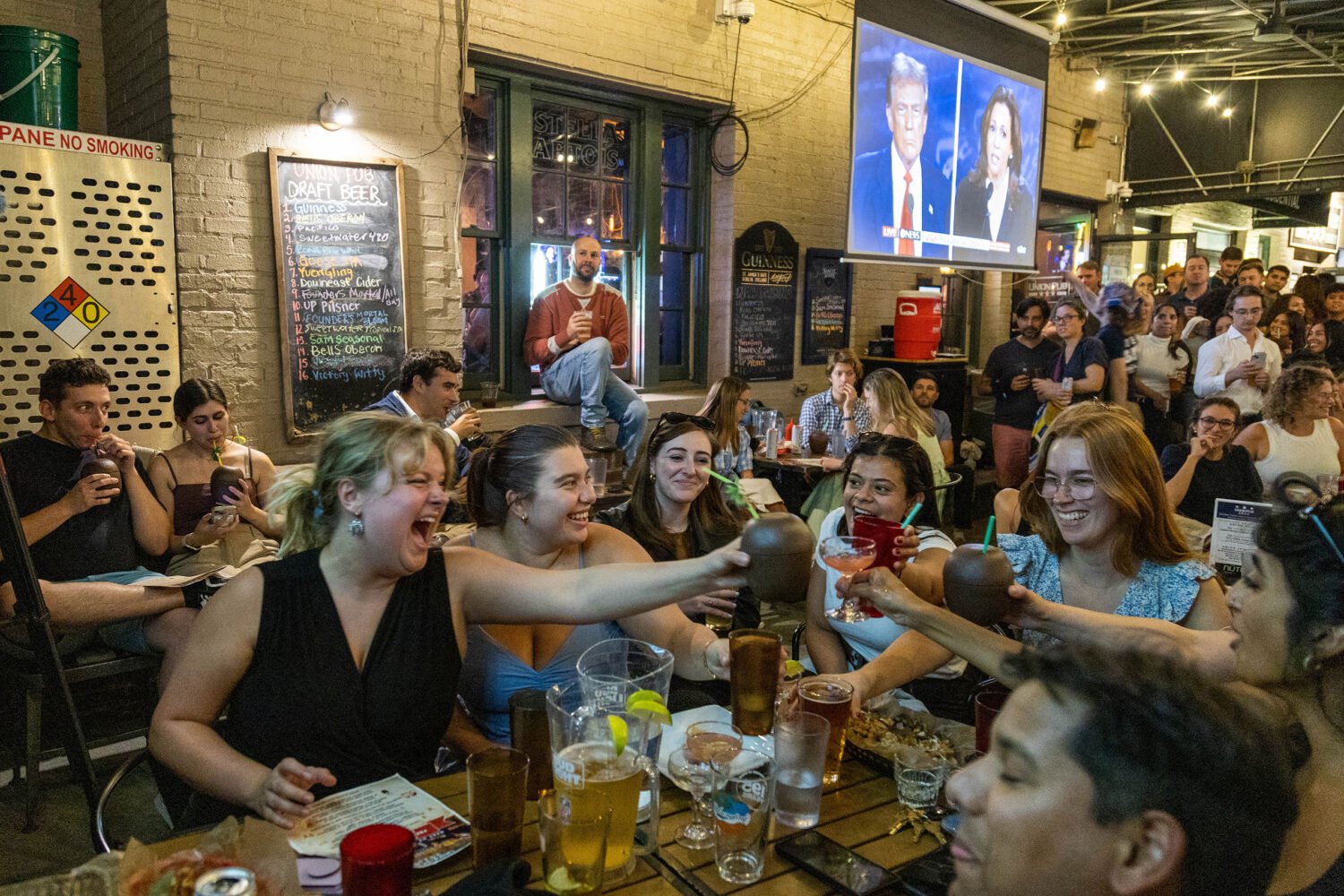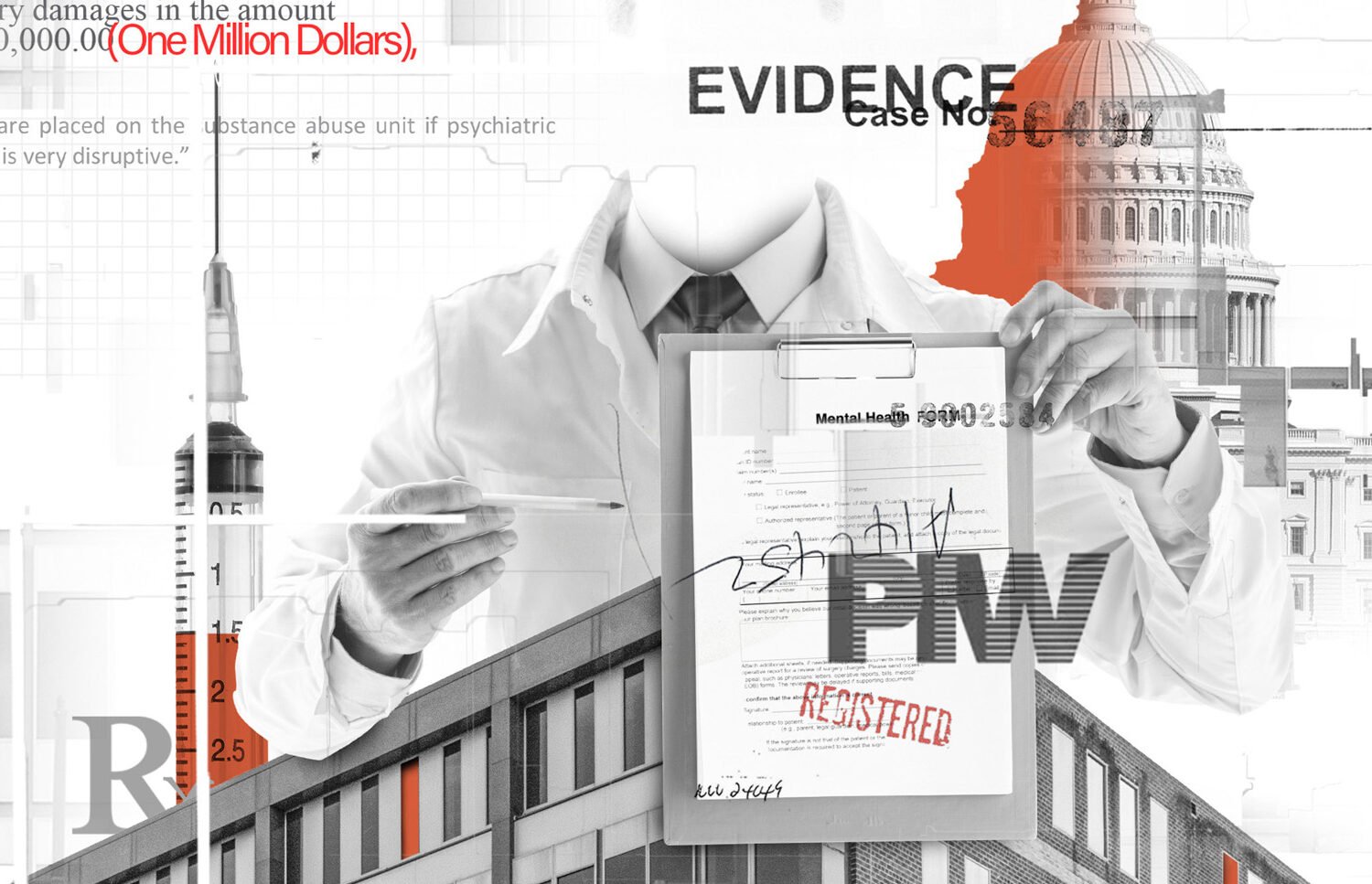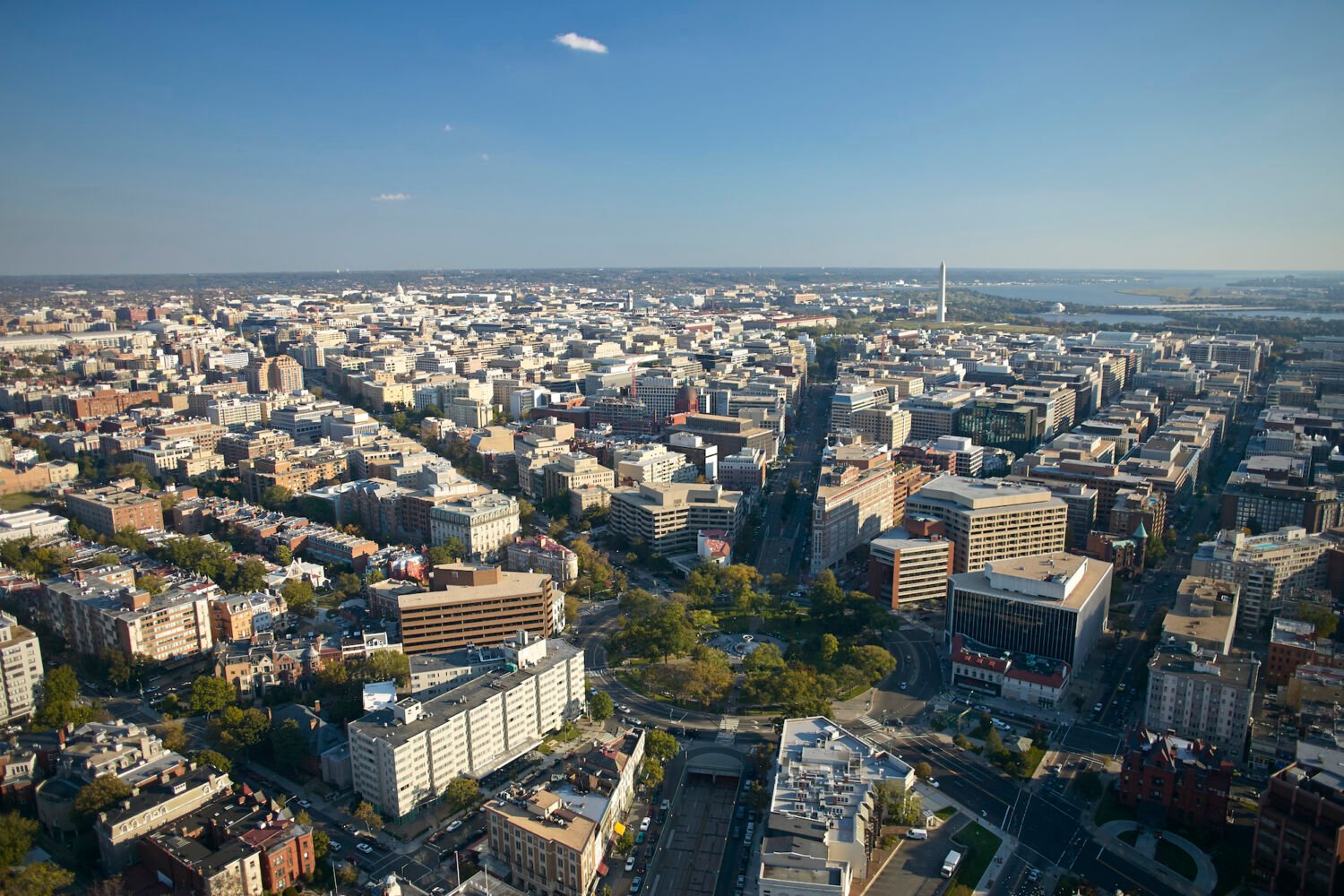On a recent Tuesday night, about half past 8 PM, I met 19-year-old Elli outside an event at a downtown Mormon church. I was joining the teenage worshipper, who uses they/them pronouns and declined to share their last name for this story, for their evening’s second act—which is slated to put far less emphasis on obedience. Our ride pulls up to the curb; Elli unhitches their necktie and climbs in.
Though Trump’s 30-day takeover of the DC police force has lapsed, federal law enforcement and National Guard troops will remain on the city’s streets indefinitely. The resulting atmosphere feels like evidence enough of the District’s waning autonomy, and more permanent efforts to limit the legislative power of our local government are underway: The House Committee on Oversight and Government Reform voted earlier this month to advance more than a dozen bills that, if passed, would further compromise home rule. As mechanisms protecting DC’s right to self-governance erode, some Washingtonians have taken it upon themselves to hold federal actors to account—sometimes by happenstance, as on 14th Street last month when passersby urged ICE agents to “go home, fascists” at a vehicle checkpoint, but others with a more coordinated approach.
Elli identifies with this latter faction of activists. Their Instagram account, @elli_documents, has garnered more than 8,500 followers in the last month and change. (This video, in which a patrolling DEA agent appears to call the Proud Boys “great guys,” scored a like from actress Sarah Jessica Parker.) The page’s virality has positioned Elli as something of a resistance content creator, someone who patrols DC several nights a week in search of federal authorities to document—usually with their friend Kap, whom they met at the Columbus Circle protest encampment organized by FLARE USA, a volunteer-led organization that describes itself as “the only continuously operating, 24/7 effort” to protest the Trump administration.
A transplant from Chattanooga, Elli moved to DC shortly after their 18th birthday, when they were outed as queer and kicked out of their evangelical parents’ house. They quickly found friends in the local pro-Palestine activist community, which overlaps considerably with the movement against federal occupation in DC—another cause that captured their attention, as Trump’s crackdown on the District made them feel “angry for the city that has given me basically everything.” By day, Elli works at a bar in NoMa, and has been frequenting FLARE USA’s encampment since its inception on May 1. On the first day of the takeover in August, they caught wind of ICE presence at Union Station and hurried over. “That was where I first started taking pictures and documenting, taking videos,” Elli says. “I didn’t know what I was doing. To an extent, I still don’t know.”
Nearly every night, Elli goes for a ride in Kap’s SUV. The pair drives around on the lookout for convoys—which they’ve noticed usually consist of three to four cars, but sometimes as many as eight. Typically, Elli says, a DC police car will lead the fleet, generally followed by a Secret Service or Capitol Police vehicle. Unmarked cars will follow, often hybrid SUVs with tinted windows. When they get close enough, Elli notes the vehicles’ license plates. Sometimes they follow the cars to their destinations, or as close as they can get. Other times, sites of federal agent activity are reported to Elli by other locals—on social media or via online forums like Nextdoor and the r/washingtondc subreddit.
The pair also covers enough ground on any given night to stumble upon some law enforcement organically. Shortly after 9 PM, Elli and Kap are volleying dating woes over the thrum of Avril Lavigne’s “Sk8er Boi” when their attention is diverted by the twinkle of nearby police lights. Kap cuts off Massachusetts Avenue onto 2nd Street, Northwest, dropping Elli off at the corner before she splits to find parking. There’s a traffic stop in progress, the subject a lone male driver in a sedan.
Elli pulls their phone out and records the convoy of responding officers—first their license plates, then their vests, which identify them as members of the FBI and the Diplomatic Security Service. They count a total of seven law enforcement vehicles—a DC police car and a Metro police car, the rest unmarked. Then, Elli pivots the camera toward the FBI agents interrogating the driver, joining another passerby who started taping the encounter before we arrived. (She tells us later that she was actually on her way home from a training led by Free DC, a local group that advises residents on how to document the torrent of arrests that have followed the federal takeover.) Both remain on the curb, filming quietly, until the officers send the driver off with a ticket and depart.
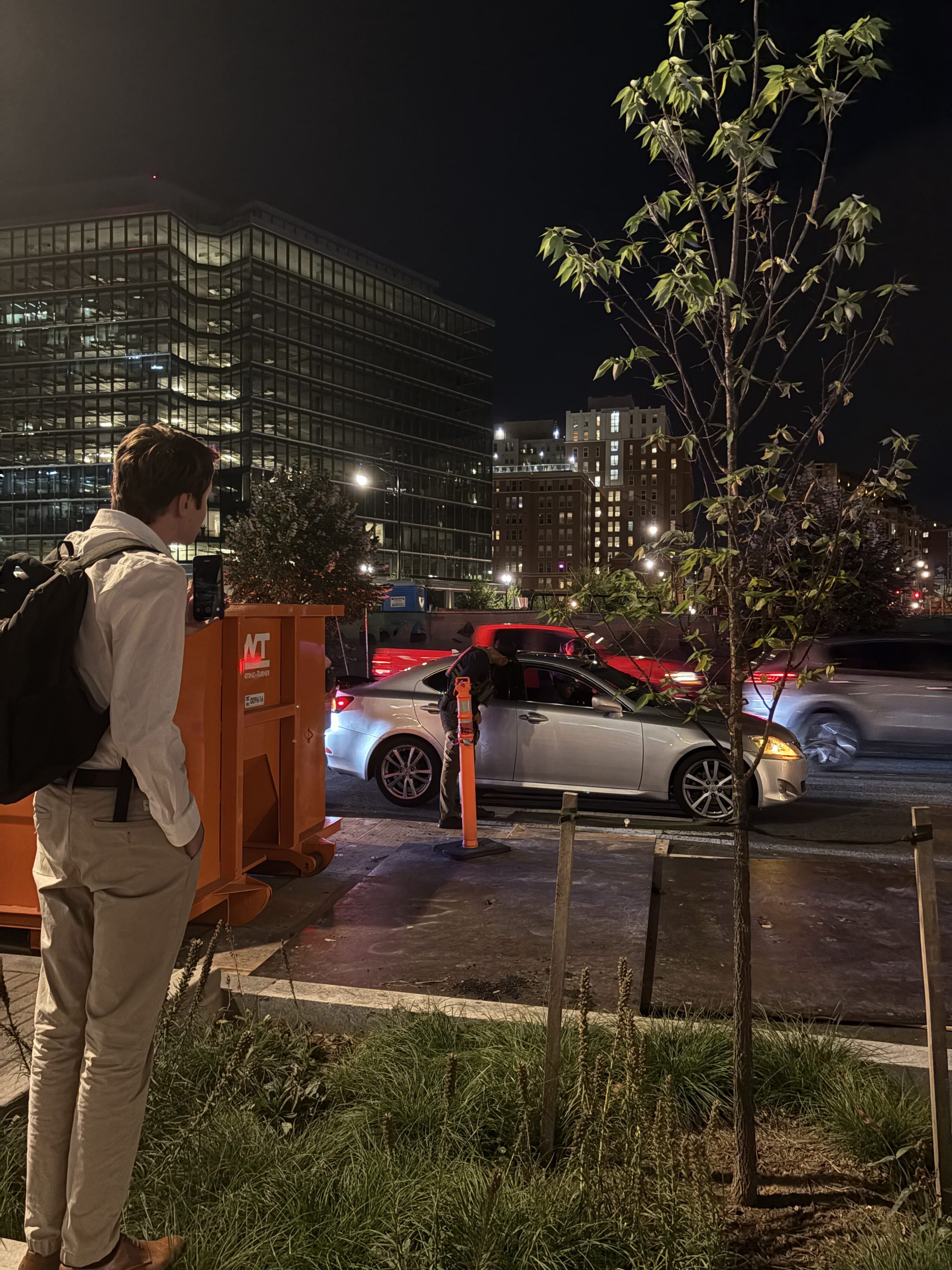
Videotaping federal agents in public spaces has become arguably the most valuable instrument in the local resistance’s toolkit. It’s easy enough to do with just a cellphone on your person, and it’s comfortably within the bounds of free speech rights. “The First Amendment protects the right of individuals to record law enforcement performing their duties in public places,” says First Amendment attorney Katie Townsend. “While the federal court of appeals in DC has not yet had an opportunity to rule on that issue, other federal courts of appeals have, and the growing, consistent consensus among federal courts is that such activity is constitutionally protected.”
Elli says they don’t publicly share most of the encounters they record, but in many of their most popular posts, they brazenly taunt federal agents on patrol—particularly those wearing face coverings. In one clip, filmed on August 16, Elli’s voice is heard from offscreen as the camera closes in on the neck gaiter-obstructed head of a Homeland Security agent. “Why do you have your face covered?” Elli shouts. “’Cause I’m ugly,” the officer replies. “Yeah, we knew that,” Elli says back. The interaction has been viewed on Instagram more than 97,000 times. “Even if it’s true that we can’t stop an arrest, at least we can shame them publicly,” Elli says.
Interfering with an arrest is a misdemeanor offense in the District. That includes physical disruptions, or even refusal to stand a “safe distance” away from the scene (though DC law does not specify what qualifies as a “safe distance”). But on its face, heckling the police is as constitutional as heckling anyone else; that said, the line there is especially subject to blurring. “For example, I could imagine a scenario where there are protesters in a public place and they’re heckling the police, and law enforcement might say, ‘It’s creating such a disruption that it is actually interfering with our ability to do our jobs,’” Townsend says.
Elli stays quiet when the feds are physically engaging with the public during a traffic stop or arrest—they don’t want to escalate the situation when a suspect is in a vulnerable position. No more than 15 minutes after we leave the scene of the traffic stop, they get word of a federal response around North Capitol Street. As we’re making our way there, we encounter an arrest underway in Dave Thomas Circle. DC police are on the scene, along with the FBI. A Black man is being handcuffed as Elli approaches silently, camera drawn.
Elli doesn’t address the officers until the suspect is in the back of the cruiser, at which point they ask what happened. “Person being arrested,” says one DC officer on duty. Another one cuts in, telling us the man was caught crossing the street with an open container. “Why is that not a ticket?” Elli asks. “I’ve seen you pour out open containers and let them go. Is there a reason you can’t do that?” By now, several onlookers have gathered, and a handful echo Elli’s question. It’s an arrestable offense, the officer replies.
Now, the jeering starts. “Thank God for the FBI!” Elli trills sarcastically. A bystander chirps, “More racial profiling, yay!” Then, one of the DC officers makes a proposition: “Why don’t you come do a ridealong with us?”
Elli bristles with disgust. “I’m good,” they say.
“Why not?” the officer answers. “You want to be ignorant?”
“Do you want to have a patchy beard?” Elli snaps back, a predictable deployment of the sort of schoolyard jab that has spurred their viral success.
A spectator chimes in to ask, seemingly in earnest, how he could sign up for a ridealong. Another officer directs him to the police department’s website. “Do you offer fed ridealongs?” Elli pipes up. “So I can watch them arrest Black people in Thomas Circle at night?”
The rear door of the cruiser is still ajar, and the detained man inside has been sitting quietly through the kerfuffle. “What’s your name, sir?” Elli asks him. “Is there anyone we can call?” Before he can respond, a DC officer shuts the car door.
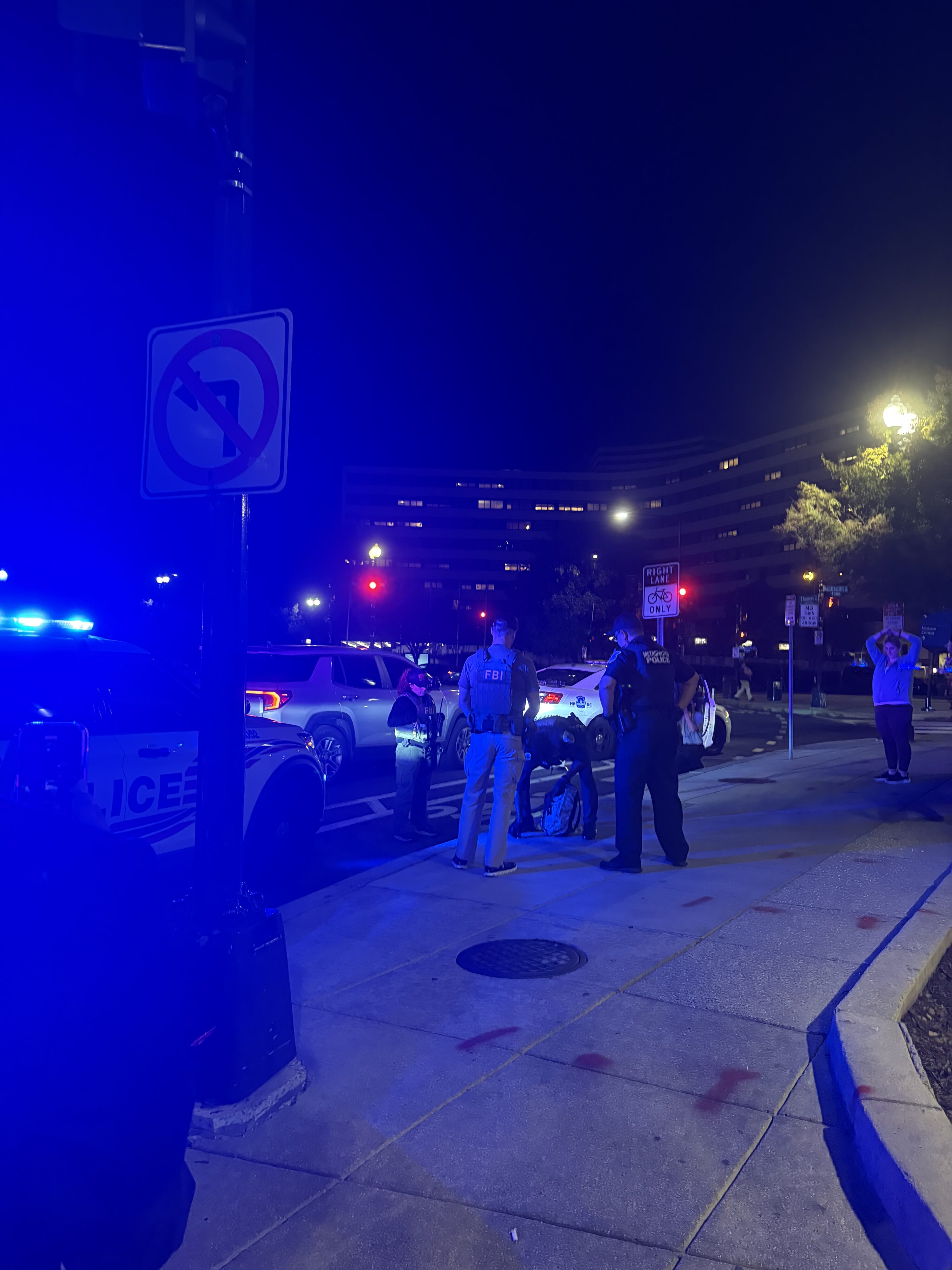
While the Thomas Circle peanut gallery implored officers to let the arrested man walk free, Elli concedes that isn’t really what they expect to achieve with this project. Aside from chronicling law enforcement’s behavior, Elli and their fellow activists hope to set an example for other cities that Trump is threatening to federalize as part of his law-and-order crackdown. “It may not be like, ‘Oh wow, I saved someone from being arrested.’ But hey, Chicago, this is how you do it. Shame them. Do it. Be ready,” they say. “We are actually laying the groundwork and we’re taking cues, by the way, from our comrades in Los Angeles.”
The heckling stratagem is not without detractors—despite its legality, it’s easy to see how it could read as distasteful. Earlier this month, Washington Post reporters spread out across high-traffic Metro stations during rush hour to observe interactions between commuters and the National Guard. They caught a few instances of passersby berating Guard members, including one woman at McPherson Square who called the troops “shitheads” as she walked by. Some people rib service members on social media, serenading them with whistled renditions of the national anthem or trailing them while blasting the Imperial March. Even Elli takes issue with harassing the Guard. “There is no benefit to anybody from you making them feel like shit because a lot of them will already tell you, ‘I don’t know why I’m here. I don’t want to be here,’” they say. “The people that folks should be angry at are the people who ordered the Guard here, which is that guy in the White House.”
And while verbally sparring with federal agents may be constitutionally sound, it’s risky. “As a general matter, these things are protected by the First Amendment. It doesn’t mean, though, that you can’t have an overzealous law enforcement officer who decides it doesn’t matter and they’re going to arrest you for filming them or for yelling at them,” Townsend says. “You may not be able to be ultimately prosecuted, because that would be inconsistent with the First Amendment, but you could still get arrested.”
It’s for this reason that Elli leaves their apartment every morning with a gut feeling that they won’t return the same night. “It is my expectation that I will end up in handcuffs with federal obstruction charges probably within the next few months—I have talked with lawyers, I have talked with other organizers, a lot of us have agreed that is probably what is going to happen. I will end up in jail. The charges will be dropped. I will not be a convicted felon,” they say. “Is that going to stop me from going out in the street? Absolutely the hell not.”

